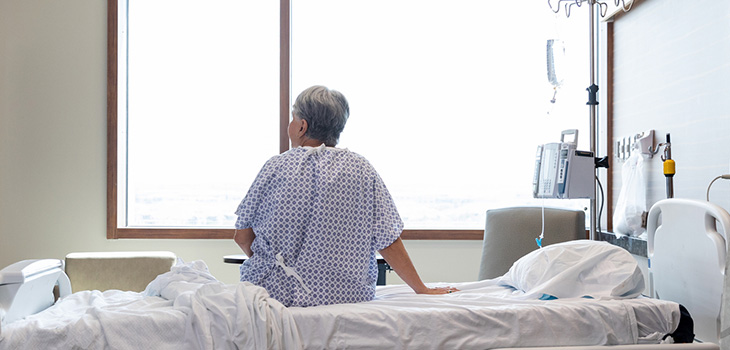Older Australians are feeling dismissed, excluded and stereotyped in healthcare settings, putting their access to life-saving care at risk, according to a new report.
The Australian Human Rights Commission The age barrier: older adults’ experiences of ageism in health care, report draws on the lived experiences of older patients, their families and sector experts, supported by a comprehensive literature review.
Perceptions of ageism are widespread across all levels of the health system, from how older people are treated by staff to broader systemic and policy issues.
The report reflects the voices of older people who have too often felt unseen, unheard or undervalued, said Age Discrimination Commissioner Robert Fitzgerald.
“People told us they felt rushed through the system, treated like a burden, a caricature, just another number. They described being dismissed by medical staff, spoken down to, excluded from decisions about their own care and having conversations directed to their family members instead of them.
“Many said their concerns were ignored, their autonomy overlooked and assumptions made based solely on their age.”
Ageism had serious consequences to health ageing, said Commissioner Fitzgerald. “It is linked to poorer health outcomes, delayed recovery, reduced quality of life and even earlier death.”
The report recommends urgent action across three key areas:
- Collaboration within the health sector to review clinical guidelines, improve training, and co-design age-inclusive models of care with older adults
- Raising awareness and challenging bias through targeted education and ageism awareness training for health professionals
- Strengthening the evidence base by investing in research to measure the impact of ageism and its intersection with other forms of discrimination.
Health sector targeted
The Commission has launched a new project aimed at the health sector. Breaking the Age Barrier aims to transform attitudes about age in healthcare through targeted workshops and training.
Through targeted workshops with health workers and consumers, it aims to build awareness of age bias, and support more inclusive, person-centred care across government, non-government and community health settings.
“We recognise the dedication of our health professionals and the pressures they face. But as our population ages, demand on health services will only grow. This is an urgent moment for us to find out how care can be improved,” said Commissioner Fitzgerald.
‘This report is not about blame. It is an invitation to doctors, nurses, allied health staff and their employers to work with us toward generational reform. To build a system where every person is treated with dignity, empathy and respect, not as a stereotype, but as a human being.”
Read the report here








